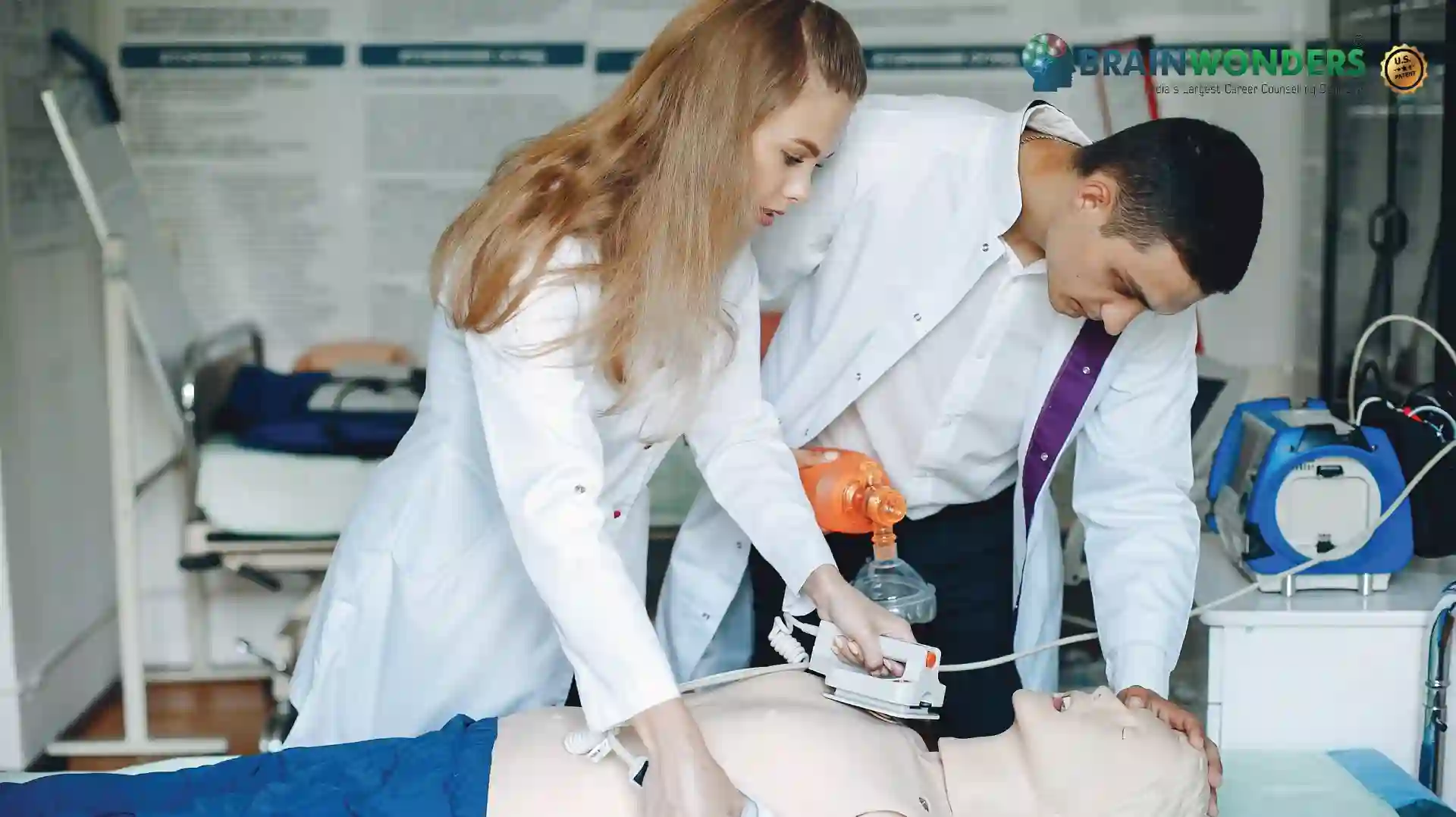Stories you may like
Respiratory Therapy Technician
A Respiratory Therapy Technician is a healthcare professional specialized in the assessment, treatment, and care of patients with respiratory disorders. These technicians work under the supervision of respiratory therapists and physicians to assist in providing critical respiratory care. They play a crucial role in various medical settings, including hospitals, nursing homes, and home healthcare services. Their expertise is particularly essential in managing conditions such as chronic obstructive pulmonary disease (COPD), asthma, and other lung-related ailments.
The educational pathway for becoming a Respiratory Therapy Technician typically involves completing a postsecondary certificate or associate degree program focusing on respiratory care. These programs include coursework in human anatomy, physiology, and respiratory therapy procedures, coupled with practical, hands-on training in clinical settings. Certification and licensure are often required, designed to ensure that technicians possess the requisite knowledge and skills to deliver high-quality respiratory care. By adhering to rigorous professional standards, Respiratory Therapy Technicians significantly contribute to the overall healthcare delivery system, ensuring patients receive effective and compassionate respiratory support.
What Does A Respiratory Therapy Technician Do?
A Respiratory Therapy Technician, often referred to as a Respiratory Therapist (RT), plays a crucial role in the healthcare system, specializing in the assessment and treatment of patients with breathing or cardiopulmonary disorders. These skilled professionals work under the supervision of physicians to provide essential respiratory care services to individuals affected by chronic respiratory diseases such as asthma, bronchitis, emphysema, and other ailments that compromise breathing. They are trained in the use of advanced respiratory equipment designed to monitor and manage patients’ airflow, administer medical gases, perform chest physiotherapy, and assist with mechanical ventilation for critically ill patients.
Respiratory Therapy Technicians exhibit a comprehensive understanding of human anatomy, physiology, and the principles of respiratory care. Their responsibilities extend to maintaining accurate patient records, educating patients and their families on respiratory health and prescribed therapies, and responding adeptly in emergency situations to provide lifesaving interventions. Working in various healthcare settings, including hospitals, outpatient clinics, rehabilitation centers, and home healthcare environments, RTs are indispensable team members dedicated to improving respiratory health outcomes. By combining their technical expertise with compassionate patient care, Respiratory Therapy Technicians play a pivotal role in enhancing the quality of life for countless individuals facing respiratory challenges.
How To Become A Respiratory Therapy Technician?
Becoming a Respiratory Therapy Technician involves acquiring specialized knowledge and hands-on skills essential for helping patients with breathing difficulties. Start by obtaining a high school diploma or equivalent, followed by enrolling in an accredited respiratory therapy program, typically offered at community colleges or technical schools. These programs combine classroom instruction with clinical experience. After completing your education, obtaining certification through the National Board for Respiratory Care (NBRC) enhances job prospects and credibility. Commitment to continuous education and skill development is crucial, as the field of respiratory care is dynamic and ever-evolving.
Respiratory Therapy Technician Career Paths
A career path for a Respiratory Therapy Technician (RTT) begins with obtaining the necessary educational foundation, typically an associate degree in respiratory therapy from an accredited program. This is followed by passing the Certified Respiratory Therapist (CRT) exam, which is often a prerequisite for licensure in many states. Entry-level positions as RTTs focus on working under the supervision of licensed respiratory therapists and physicians, providing essential therapeutic and diagnostic care to patients with respiratory disorders.
With experience and continued education, RTTs can advance to more specialized roles, such as Registered Respiratory Therapist (RRT), by passing the advanced-level certification exam. Opportunities for advancement include supervisory, educational, and clinical specialty roles, such as neonatal-pediatric specialist or pulmonary function technologist. Additionally, some RTTs choose to further their education by obtaining a bachelor's or master's degree in respiratory therapy, opening avenues for roles in healthcare administration, research, and higher-level management positions within healthcare facilities. The career path for an RTT offers a blend of hands-on patient care and opportunities for professional growth and specialization.
Respiratory Therapist Responsibilities:
- Monitoring patient physiological responses to therapy such as arterial blood gases, vital signs or blood chemistry, and lung function changes, and consulting with physicians if there are adverse reactions.
- Working as part of a team of health care professionals to manage patient care by assisting with medical procedures.
- Setting up and operating devices including therapeutic gas administration apparatus, mechanical ventilators, environmental control systems, and aerosol generators.
- Following specified parameters of treatment.
- Providing emergency care, such as external cardiac massage, artificial respiration, or assistance with cardiopulmonary resuscitation.
- Inspecting, testing, cleaning, and maintaining respiratory therapy equipment to ensure it is functioning safely and efficiently.
- Maintaining charts that contain patient identification and therapy information.
- Measuring arterial blood gases, reading prescriptions, lung capacity, and reviewing other information to assess patient condition.
- Relaying blood analysis results to a physician.
- Making emergency visits to resolve equipment problems when necessary.
- Ordering equipment repairs when necessary.
- Explaining health care treatment procedures to patients to gain cooperation.
- Checking pulmonary function in patients.
Respiratory Therapist Requirements:
- Completion of an accredited respiratory therapy program or technical college course for respiratory therapy.
- Registration or certification by the national board for respiratory Care (NBRC).
- Current RCP license in the state of practice.
- Current RN or LPN license in the state of practice.
- Respiratory care, emergency care, and intensive care experience.
- Must possess a valid and current driver license and auto insurance.
- Current BLS and/or CPR certification from the American Heart Association or American Red Cross.
- Strong knowledge of pulmonary function and pulmonary rehabilitation.
- Experience with respiratory equipment.






User's Comments
No comments there.